#Liberation
Explore tagged Tumblr posts
Text

No mysterious 'invisible hand' is guiding society; it is 'regulated' by the relentless permanent social war
81 notes
·
View notes
Text
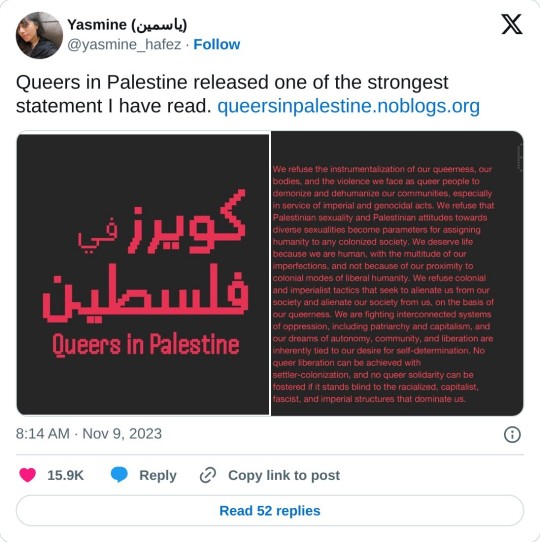
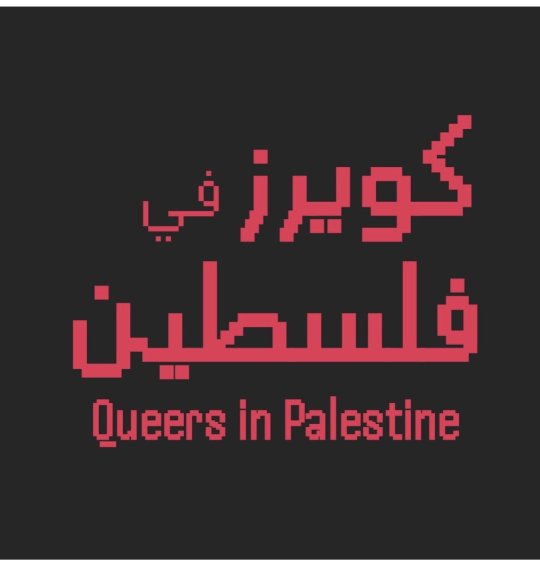
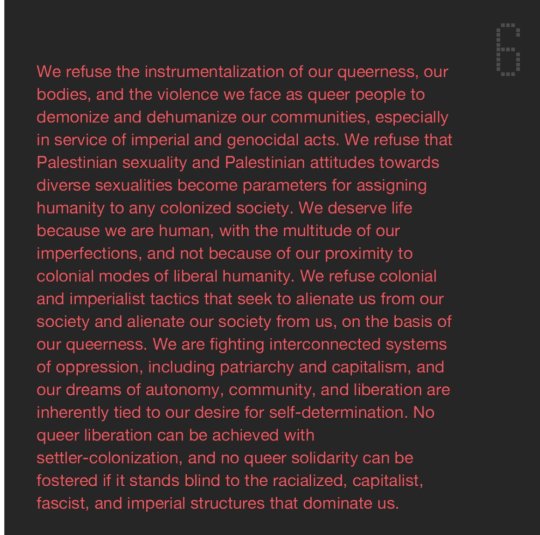
69K notes
·
View notes
Text

The mile-long rainbow flag being carried down First Avenue in New York City today in 1994 🌈
#🌈#pride#pride month#happy pride 🌈#nyc#todaynews#first avenue#lgbt#lgbtq community#lgbtq#lgbt pride#lgbt nsft#queer community#queer#queer pride#rainbow flag#rainbow#liberation#equality#equal rights#coming out#same sex#pride parade#pride 2024#stonewall#gay liberation#harvey milk
10K notes
·
View notes
Text

February 16, 2025 - Ultras Red Men, supporters of CODM, Meknès, Morocco, showed their support for the resistance in Gaza, and their opposition to Trump's ethnic cleansing plan, revealing a banner reading: "GAZA NEEDS NO RELOCATION, ONLY LIBERATION". [link]
#football#ultras#ultras red men#codm#meknès#morocco#flare#banner#solidarity#gaza#resistance#free palestine#palestine#ethnic cleansing#2025#video#propaganda#death to israel#death to america#anti-imperialism#anti-zionism#us-imperialism#liberation
4K notes
·
View notes
Text
For non-USA-inauguration reasons (/sar) I'm just going to drop this list of anti-carceral mental health supports. (988 and other government-run resources are ultimately connected to the cops. This is a list of resources that will not report you /srs) Obviously, the bigger issues are things like housing, food, discrimination, etc, but if you need a life vest while we're still working on fixing the system, here they are.
~~~THRIVE Lifeline: text “THRIVE” to +1.313.662.8209 from anywhere, 24/7. Text-based support, by and for multiply marginalized people. ~~~Trans Lifeline: call 877.565.8860 in US or 877.330.6366 in Canada, Mon-Fri 10a-6p PT. Peer support and crisis hotline for trans people. ~~~BlackLine: call or text 1.800.604.5841 in US, Mon-Fri 6a-8p, Sat-Sun 5p-9p PT. Crisis support with a Black, LGBTQ+, and Black Femme lens, and a safe line to report police brutality. ~~~Wildflower Alliance Peer Support Line: call 888.407.4515 in the US, open 4-6p PT Mon-Thurs, and 4-7p PT Fri-Sun. Lived experience with psychiatric diagnosis, trauma, addiction, etc. ~~~Project LETS: text 401.400.2905, Mon-Sat 7a-1p PT for urgent support with psychiatric incarceration / involuntary hospitalization in the US. ~~~Don’t Call The Police: A database of local and national community-based alternatives to calling the police or 911 has been broken down by major US cities. https://thriv.life/DontCall
Please trust in the hundreds of thousands of people fighting for you right now. We love you. We are trying so hard to make a better world for you /gen
#social justice#sociology student#eat the rich#trans liberation#fat liberation#mad liberation#queer liberation#liberation#black liberation#youth liberation#trans rights#protect trans lives#trans lives matter#black lives matter#blm#us stuff#usa stuff#usa news#2025 inauguration#traitor trump#president trump#trump#usa politics#important#lgbtq+#lgbt rights#mytomatoes#anti carceral#hotline#warmline
2K notes
·
View notes
Text
As I keep shouting into the void, pathologizers love shifting discussion about material conditions into discussion about emotional states.
I rant approximately once a week about how the brain maturity myth transmuted “Young adults are too poor to move out of their parents’ homes or have children of their own” into “Young adults are too emotionally and neurologically immature to move out of their parents’ homes or have children of their own.”
I’ve also talked about the misuse of “enabling” and “trauma” and “dopamine” .
And this is a pattern – people coin terms and concepts to describe material problems, and pathologization culture shifts them to be about problems in the brain or psyche of the person experiencing them. Now we’re talking about neurochemicals, frontal lobes, and self-esteem instead of talking about wages, wealth distribution, and civil rights. Now we can say that poor, oppressed, and exploited people are suffering from a neurological/emotional defect that makes them not know what’s best for themselves, so they don’t need or deserve rights or money.
Here are some terms that have been so horribly misused by mental health culture that we’ve almost entirely forgotten that they were originally materialist critiques.
Codependency What it originally referred to: A non-addicted person being overly “helpful” to an addicted partner or relative, often out of financial desperation. For example: Making sure your alcoholic husband gets to work in the morning (even though he’s an adult who should be responsible for himself) because if he loses his job, you’ll lose your home. https://www.nytimes.com/2022/07/08/opinion/codependency-addiction-recovery.html What it’s been distorted into: Being “clingy,” being “too emotionally needy,” wanting things like affection and quality time from a partner. A way of pathologizing people, especially young women, for wanting things like love and commitment in a romantic relationship.
Compulsory Heterosexuality What it originally referred to: In the 1980 in essay "Compulsory Heterosexuality and Lesbian Existence," https://www.journals.uchicago.edu/doi/abs/10.1086/493756 Adrienne Rich described compulsory heterosexuality as a set of social conditions that coerce women into heterosexual relationships and prioritize those relationships over relationships between women (both romantic and platonic). She also defines “lesbian” much more broadly than current discourse does, encompassing a wide variety of romantic and platonic relationships between women. While she does suggest that women who identify as heterosexual might be doing so out of unquestioned social norms, this is not the primary point she’s making. What it’s been distorted into: The patronizing, biphobic idea that lesbians somehow falsely believe themselves to be attracted to men. Part of the overall “Women don’t really know what they want or what’s good for them” theme of contemporary discourse.
Emotional Labor What it originally referred to: The implicit or explicit requirement that workers (especially women workers, especially workers in female-dominated “pink collar” jobs, especially tipped workers) perform emotional intimacy with customers, coworkers, and bosses above and beyond the actual job being done. Having to smile, be “friendly,” flirt, give the impression of genuine caring, politely accept harassment, etc. https://weld.la.psu.edu/what-is-emotional-labor/ What it’s been distorted into: Everything under the sun. Everything from housework (which we already had a term for), to tolerating the existence of disabled people, to just caring about friends the way friends do. The original intent of the concept was “It’s unreasonable to expect your waitress to care about your problems, because she’s not really your friend,” not “It’s unreasonable to expect your actual friends to care about your problems unless you pay them, because that’s emotional labor,” and certainly not “Disabled people shouldn’t be allowed to be visibly disabled in public, because witnessing a disabled person is emotional labor.” Anything that causes a person emotional distress, even if that emotional distress is rooted in the distress-haver’s bigotry (Many nominally progressive people who would rightfully reject the bigoted logic of “Seeing gay or interracial couples upsets me, which is emotional labor, so they shouldn’t be allowed to exist in public” fully accept the bigoted logic of “Seeing disabled or poor people upsets me, which is emotional labor, so they shouldn’t be allowed to exist in public”).
Battered Wife Syndrome What it originally referred to: The all-encompassing trauma and fear of escalating violence experienced by people suffering ongoing domestic abuse, sometimes resulting in the abuse victim using necessary violence in self-defense. Because domestic abuse often escalates, often to murder, this fear is entirely rational and justified. This is the reasonable, justified belief that someone who beats you, stalks you, and threatens to kill you may actually kill you.
What it’s been distorted into: Like so many of these other items, the idea that women (in this case, women who are victims of domestic violence) don’t know what’s best for themselves. I debated including this one, because “syndrome” was a wrongful framing from the beginning – a justified and rational fear of escalating violence in a situation in which escalating violence is occurring is not a “syndrome.” But the original meaning at least partially acknowledged the material conditions of escalating violence.
I’m not saying the original meanings of these terms are ones I necessarily agree with – as a cognitive liberty absolutist, I’m unsurprisingly not that enamored of either second-wave feminism or 1970s addiction discourse. And as much as I dislike what “emotional labor” has become, I accept that “Women are unfairly expected to care about other people’s feelings more than men are” is a true statement.
What I am saying is that all of these terms originally, at least partly, took material conditions into account in their usage. Subsequent usage has entirely stripped the materialist critique and fully replaced it with emotional pathologization, specifically of women. Acknowledgement that women have their choices constrained by poverty, violence, and oppression has been replaced with the idea that women don’t know what’s best for themselves and need to be coercively “helped” for their own good. Acknowledgement that working-class women experience a gender-and-class-specific form of economic exploitation has been rebranded as yet another variation of “Disabled people are burdensome for wanting to exist.”
Over and over, materialist critiques are reframed as emotional or cognitive defects of marginalized people. The next time you hear a superficially sympathetic (but actually pathologizing) argument for “Marginalized people make bad choices because…” consider stopping and asking: “Wait, who are we to assume that this person’s choices are ‘bad’? And if they are, is there something about their material conditions that constrains their options or makes the ‘bad’ choice the best available option?”
#mad pride#neurodiversity#ableism#ageism#youth rights#liberation#disability rights#classism#capitalism#mental health culture#pop psychology#feminism#emotional labor
8K notes
·
View notes
Text

Palestinian Christians throwing stones at Israeli soldiers while flying a flag bearing the Cross of Jerusalem at the northern entrance of Bethlehem, 2000🇵🇸
#photography#palestine#palestinian#free palestine#bethlehem#intifada#second intifada#middle east#2000s#history#liberation#christian faith#eastern christianity#orthodox#resistance#palestinian christians#my post
700 notes
·
View notes
Text
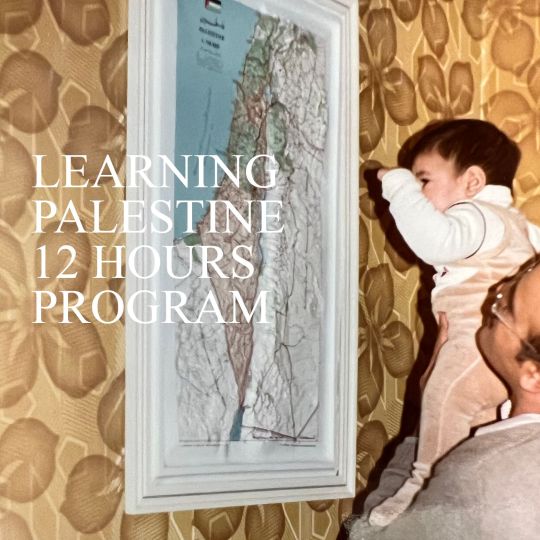
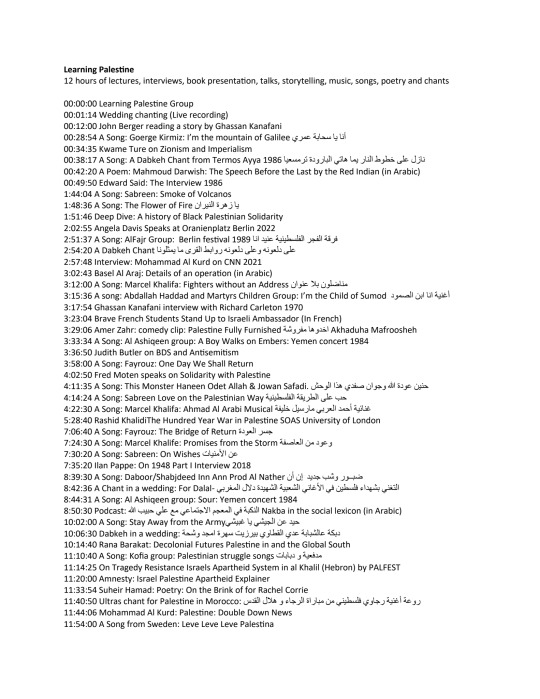
https://www.dropbox.com/sh/41pu2j0alrvmmqq/AADcNEo2K-fsdlacFfuXnKtva?dl=0
Above is the link to an audio file with Palestinian music, read-aloud poetry, storytelling, and excerpts from speeches on history and liberation. It was gathered by Radio Al Hara, an internet radio station broadcast from Ramallah, Bethlehem, and Amman in Jordan, founded during the pandemic as a way to connect during isolation. “Al Hara” means “the neighbourhood” in Arabic. From the river to the sea! 🇵🇸
#palestine#liberation#radio alhara#kwame ture#john berger#ghassan kanafani#edward said#mahmoud darwish#judith butler#angela davis#i actually got to listen to her in berlin that day#and took notes of her entire speech#as it was so amazing!#it was almost exactly a year ago#nothing brings hope like listening to revolutionaries
7K notes
·
View notes
Text
I still believe that the only path to liberation for Jews or Palestinians is one that lies together.
I still believe that us fighting only hurts ourselves, and only helps the people who drove us to fight.
I still believe that it is possible for us to have a future in which everyone, everyone, is allowed to live.
I must.
767 notes
·
View notes
Quote
Marriage should liberate, not incarcerate. Real love shouldn't limit a person's potential, it should expand it.
Seth Adam Smith
#Seth Adam Smith#quotes#motivation#inspiration#thepersonalquotes#literature#lit#liberation#love#marriage#potential#real-love
647 notes
·
View notes
Text
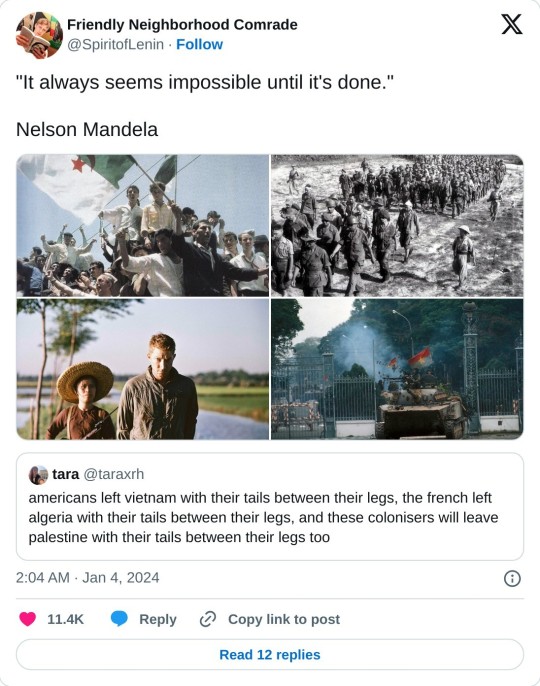




#yemen#jerusalem#tel aviv#current events#palestine#free palestine#gaza#free gaza#news on gaza#palestine news#news update#war news#war on gaza#palestinian resistance#liberation#decolonisation
18K notes
·
View notes
Text

A US medic tends to the wounds of a German soldier - France 1944
#world war two#ww2#worldwar2photos#history#1940s#ww2 history#wwii#world war 2#ww2history#wwii era#usarmy#us army#1944#liberation#medic
815 notes
·
View notes
Text

October 7, 2023 - Palestinians tear down part of the apartheids-wall around Gaza at the start of their attack against the Israeli occupation. [video]
#free palestine#palestine#apartheid#occupation#resistance#israel#anti colonialism#gif#2023#war#gaza#liberation#bulldozer#border#no borders
7K notes
·
View notes
Text
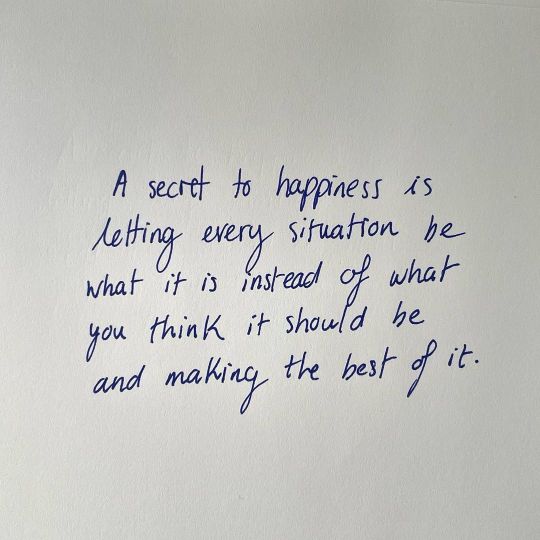
#holistic healing#healing journey#self healing#self love#self care#self empowerment#healing#inner peace#self compassion#happy#happiness#self growth#peace#liberation#ascension#freedom#good vibes#good vibrations#faith#hope
4K notes
·
View notes
Text
I'm not, generally speaking, a fan of punishment as a solution to social problems. Punishment is often overly harsh, ineffective as a deterrent, and doesn't solve the actual problem. The punitive mentality is more focused on making sure the "bad guys" "don't get away with it" than on actually solving the problem.
But I get a lot more worried when people talk about "alternatives to punishment", or when they support their proposed solutions because "it's not punishment."
Because what that means, in practice, is "I'm conceptualizing this form of coercive control as 'not punishment,' and therefore not subjecting it to the rigor, due process, or evidentiary standards of punishment."
The U.S. loves punishment. It's one of our favorite national pastimes. But we do have, both legally and culturally, some limitations on punishment, at least in theory. Punishment isn't supposed to be "cruel and unusual." It's not supposed to be inflicted without "due process of law." You're supposed to be convicted by a jury of your peers.
But if you call it "not punishment," none of that matters!
You can force people to register under a law that didn't exist when they committed their crimes, because it's "administrative," not punitive.
You can subject disabled people to shocks similar to a cattle prod -- which would surely be cruel and unusual punishment -- but it's okay, because it's not "punishment," it's a "treatment" called an "aversive" (that's therapist for "punishment").
You can have people locked up and forcibly drugged solely because they can't afford housing, but it's okay, because it's "help," not "punishment."
Police can kill people in cold blood -- judge, jury, and executioner -- and it's fine, because it's "self-defense," not "punishment," even if they argue after the fact that the victim "deserved it."
It's also a matter of cultural attitudes. If you said "The punishment for trespassing should be life in prison," or "The punishment for loitering should be permanent loss of the right to control one's body, money, or living space," or "The punishment for turnstile-jumping should be lifelong forced ingestion of drugs that numb basic cognitive functions," most people would think this was horrific, much too harsh a punishment for a relatively minor crime.
But if you change it to "Instead of jailing and punishing unhoused people with mental health issues, we should respond to their minor crimes by Getting Them Help, like institutionalization, conservatorship, or outpatient commitment," people now think this is completely reasonable.
Even being the victim of a crime can get someone not-punished far more severely than the perpetrators are "punished." People might serve jail time for financial fraud, but not usually a life sentence. Being the victim of financial fraud, however, can lead to a life sentence of institutionalization -- which fraud investigators have cited as a barrier to getting victims to report fraud. I personally know of multiple disabled young adults who were afraid to report being the victim of sexual assault or other kinds of assault because they knew that if they reported it, the perpetrator might or might not face some kind of punishment, but they would definitely face some type of "not-punishment" coercive control, like forced therapy, forced drugging, supervision, or having to leave school.
You want a society with less punishment? Me too. But only if you acknowledge that "punishment" includes all forms of coercive control. If you do something to someone against their will, if you restrict someone from their right to live as they choose, that's a punishment, regardless of whether you call it that.
#liberation#politics#punishment culture#disability rights#psychiatric abuse#antipsych#anti psychiatry#psych abolition
1K notes
·
View notes